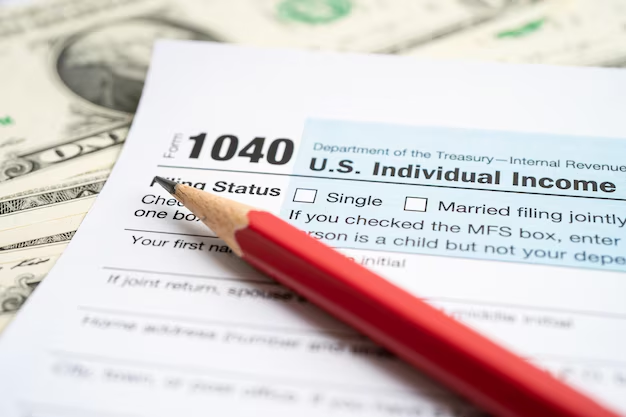Decoding California Taxes: Understanding State Tax Percentages in 2023
Tax season can be a daunting time for many, especially if you’re living in a state with a complex tax system like California. With its vibrant economy, diverse population, and innovative industries, California presents a unique tax landscape that can be challenging to navigate. So, what exactly is the California tax percentage? Let’s dive in and explore it from different angles, breaking down the essentials of state taxes to help you better understand your obligations.
Understanding California's Tax System
When you talk about California taxes, you’re dealing with a multi-layered system that includes income tax, sales tax, property tax, and several other fees. Each of these taxes plays a vital role in funding public services, infrastructure, and development projects within the state. Let's look broadly at each type:
Income Tax: A Progressive Journey
The California state income tax is known for its progressive structure, aiming to distribute the tax burden based on individuals' ability to pay. The more you earn, the higher the percentage of tax you will pay.
Key Points About California Income Tax:
- Rates range from 1% to 13.3% based on income.
- California has nine tax brackets, with the highest rate targeting individuals who earn over $1 million.
- The state income tax revenue funds essential services such as education, healthcare, and public safety.
Sales Tax: What Consumers Pay
Sales tax is an indirect tax levied on the sale of goods and services. It's an important source of revenue for the state and local governments.
Breakdown of Sales Tax Components:
- The base state sales tax rate is 7.25%, the highest minimum sales tax rate in the United States.
- Local governments can add their own sales taxes, resulting in a combined rate that can be as high as 10.25% in some areas.
- Essential items like groceries and prescription medications are exempt from sales tax, making everyday essentials more affordable.
Property Tax: Paying for Your Land
Property tax in California is relatively stable due to Proposition 13, which regulates how much property taxes can increase annually.
Essentials of Property Tax:
- Property tax rate is set at 1% of the property’s assessed value, plus any voter-approved local taxes and assessments.
- The assessed value is limited to an increase of no more than 2% annually, unless the property is sold or improved, which helps keep taxes predictable.
Special Tax Considerations in California
Tax Deductions and Credits
Tax deductions and credits can significantly lower your taxable income or tax due. California has several state-specific provisions that residents can leverage:
- Mortgage Interest Deduction: Homeowners can deduct the interest paid on their mortgages, reducing their taxable income.
- California Earned Income Tax Credit (CalEITC): Aimed at low to moderate-income working individuals, this credit can provide financial relief.
- Energy Efficiency Credits: Offers credits to residents who install energy-efficient systems in their homes.
The Impact of Proposition 13
Proposition 13 plays a crucial role in the property tax landscape. Passed in 1978, it aims to cap property tax rates, reducing the financial burden on Californians and promoting long-term homeownership security.
- Limits annual increases in assessed property value to 2% until a change in ownership occurs.
- Transfers between parents and children may be excluded from reassessment, preserving lower property tax rates.
Navigating California Taxes: Practical Tips
Filing Your Income Tax Returns
To ensure compliance and potentially reduce your tax liability, following these best practices is essential:
- Stay Informed: Keep abreast of any tax law changes that might affect your obligations.
- Organize Your Documents: Gather relevant income statements, receipts, and previous return copies early.
- Use Tax Software: Consider e-filing with reputable software that’s updated with California state-specific rules.
Maximizing Deductions and Credits
- Track Your Expenses: Document eligible expenses for deductions meticulously throughout the year.
- Leverage Tax-Advantaged Accounts: Consider contributing to retirement accounts or Health Savings Accounts (HSAs) if eligible.
- Consult a Professional: Tax professionals can offer tailored advice, ensuring you claim all applicable deductions and credits.
Staying Ahead with Estimated Payments
Self-employed individuals and those with significant non-wage income may need to pay estimated taxes quarterly to avoid penalties.
- Estimate Conservatively: Base your payments on projections that consider all income streams.
- Use the Right Forms: Ensure you’re utilizing the correct forms for estimated state tax payments, such as Form 540-ES.
Simplifying Complexity: A Handy Summary with Emojis
Here's a concise overview of key California tax information that can serve as a quick reference:
🔍 Essential Tax Overview
- Income Tax: 1%-13.3% based on income brackets
- Sales Tax: 7.25% base, up to 10.25% with local surcharges
- Property Tax: 1% of assessed value, capped increases by Prop 13
💡 Practical Tips
- 🗂️ Organize Documents: Keep tax records and receipts handy
- 📈 Leverage Credits: Apply for CalEITC or energy efficiency credits
- 🔄 Review Changes: Stay updated on tax law adjustments
Concluding Remarks: Empowering Your Tax Decisions
California’s tax system may seem complex at first glance, but understanding its intricacies can empower you to make informed decisions and ensure compliance. Regularly review your financial situation, stay informed about tax law changes, and don't hesitate to consult with tax professionals for personalized advice. Equipped with this knowledge, you're better prepared to manage your taxes efficiently and focus on what truly matters—flourishing in the dynamic landscape of the Golden State.

Related Topics
- Am I Tax Exempt
- Are 401k Contributions Tax Deductible
- Are 529 Plan Contributions Tax Deductible
- Are Attorney Fees Tax Deductible
- Are Campaign Contributions Tax Deductible
- Are Charitable Donations Tax Deductible
- Are Church Donations Tax Deductible
- Are Churches Tax Exempt
- Are Closing Costs Tax Deductible
- Are Contributions To 529 Plans Tax Deductible
